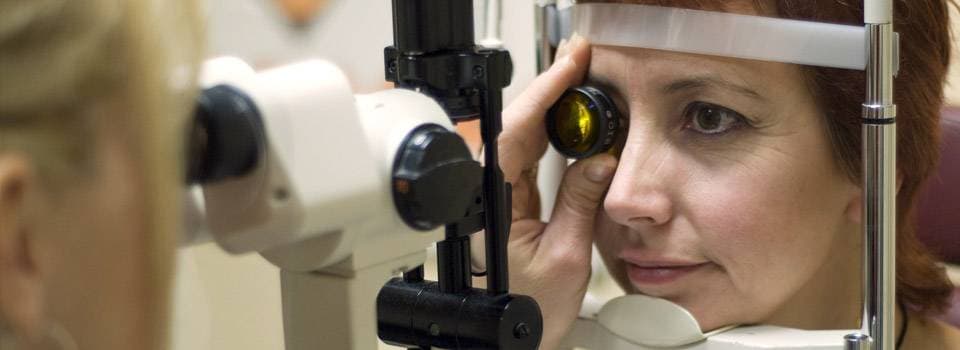How does Diabetes affect the eyes?
Diabetes can affect the tiny blood vessels inside the eye — especially in the retina — often without early symptoms. Regular, comprehensive eye exams help detect changes early so treatment can begin at the right time to preserve vision.
- Annual dilated exams are standard for most patients with diabetes.
- More frequent visits if retinopathy or macular edema is present.
- Imaging helps track changes over time and guide treatment.
- Good systemic (whole-body) control supports better ocular (eye) outcomes.

Why these exams matter
Persistently high blood sugar may lead to conditions such as diabetic retinopathy, diabetic macular edema, cataracts, and glaucoma. Many of these begin silently, so timely diagnosis and ongoing monitoring are key to reducing the risk of vision loss.
When to schedule
- Type 1 diabetes: First dilated exam within 5 years of diagnosis, then annually (or as recommended).
- Type 2 diabetes: Dilated exam at diagnosis, then at least annually.
- Pregnancy with diabetes: Exam before conception or early in the first trimester, with follow-ups as advised.
What to expect at your visit
- Review of medical & diabetes history
- Vision testing & refraction
- Eye pressure measurement (glaucoma screening)
- Dilated retinal exam
- Retinal photography for documentation
- OCT scans to assess the macula & optic nerve
- Fluorescein angiography when detailed vessel mapping is required

Managing diabetes & your vision
Excellent control of blood sugar, blood pressure, and cholesterol levels helps protect the eyes. Your eye care team and primary care provider work together to tailor follow-up intervals and any needed treatments.
- Bring your most recent A1C (if available) and current medication list.
- Plan for temporary light sensitivity after dilation.
- Arrange transportation if bright light bothers you after the exam.
- Diabetic retinopathy evaluations & co-management
- Macular edema assessment
- Glaucoma screening & monitoring
- Pre- and post-operative cataract care